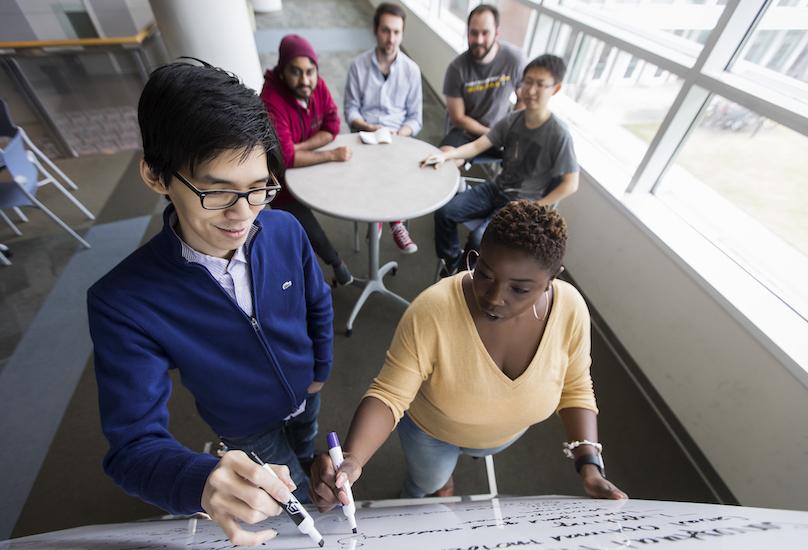


Founding the School
The creation of the School of Computational Science and Engineering (CSE) began in earnest in Spring 2005 when Professor Richard DeMillo, the Dean of the College of Computing, tasked Professor Richard Fujimoto with creating a new academic unit as part of a reorganization of the college. That reorganization had resulted in the creation of two new departments (termed divisions initially) within the college that would eventually become the School of Computer Science and the School of Interactive Computing. But unlike these two divisions, which were created mainly by allocating the college’s existing faculty into two units, the CSE Division would be built almost entirely “from scratch” by hiring new faculty aligned with the CSE Division’s mission. Later that year, two new faculty, Professor Haesun Park and then-Associate Professor David Bader, would join the new CSE Division, with Fujimoto as its founding chair. Professor Park would serve as the associate chair for the new division. A small number of administrative, financial, and technical staff were also brought on board to enable the division to function as an autonomous academic unit.
Two underlying principles guided the establishment of the CSE Division. The first was recognizing that Computational Science and Engineering is an academic discipline, one devoted to the study and advancement of computational models of natural and engineered systems. As such, the CSE discipline includes a body of knowledge distinct from computer science, encompassing areas such as modeling and simulation, computational data analytics, and high-performance computing. The second principle is that CSE is highly interdisciplinary: it seeks to create new computational methods that will lead to breakthroughs in science, engineering, and beyond. Doing so would require close collaborations with experts in the field of application, both to define the problems and realize effective solutions.
These principles shaped CSE’s educational programs, starting with interdisciplinary graduate degree programs in Computational Science and Engineering. Professor Fujimoto led the creation of the CSE M.S. and Ph.D. degree programs in collaboration with three schools in the College of Sciences and four in the College of Engineering. These programs were officially approved in 2007 and began operation the following year. The CSE M.S. program included an online option, making it the first online degree program offered by the College of Computing. CSE would later partner with other units on campus to create other new interdisciplinary degree programs such as an M.S. program in Analytics, a Ph.D. program in Machine Learning, and an M.S. program in Urban Analytics, as well as join existing degree programs in bioinformatics and bioengineering. The Computing Research Undergraduate Intern Summer Experience (CRUISE) program was created to bring undergraduate students to campus, especially students from underrepresented minorities, and introduce them to CSE’s research programs. At the undergraduate level, CSE joined the Computer Science program by defining a thread in modeling and simulation. Fujimoto also led the Computational-X initiative, which resulted in two undergraduate minor programs for students outside the College of Computing.
The approach defined by the CSE Division provided fertile ground for establishing substantial interdisciplinary research activities that combined advances in computational methods with research in application domains. One significant project was Foundations of Data and Visual Analytics (FODAVA), funded by the National Science Foundation and the Department of Homeland Security. Professor Haesun Park led FODAVA, and Georgia Tech won the award as the lead university for the entire program. FODAVA was important not only because of its high visibility and substantial research funding. It also included faculty from the College of Sciences, the College of Engineering, and the other two schools of the College of Computing. Consequently, FODAVA validated the viability of forming an academic unit based on the two fundamental principles underlying the formation of the CSE Division.
Buoyed by its successes in establishing interdisciplinary education programs and the substantial research funding brought to the CSE Division through FODAVA and other programs, CSE became an official school in the College of Computing in 2010, with Fujimoto continuing to lead as the school’s first chair. By 2013 the school had grown to include thirteen tenure track faculty homed in CSE, three faculty with joint appointments with other units, and several adjunct and research faculty, and annual research expenditures totaling $8.8 million[1].
[1] GT Computing, College of Computing Annual Report, 2012-2013.